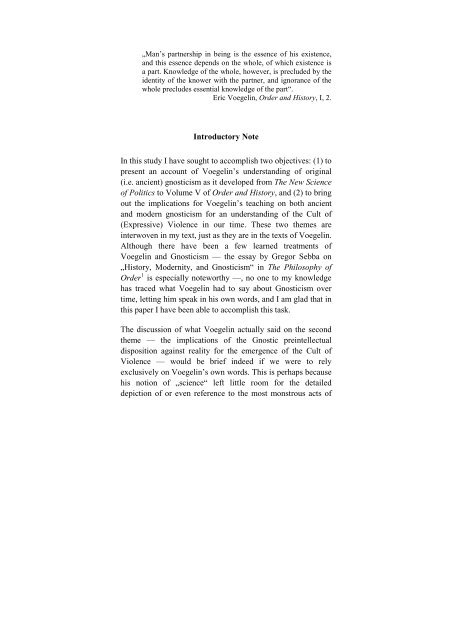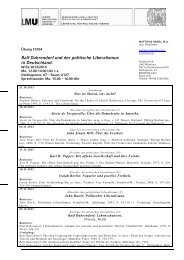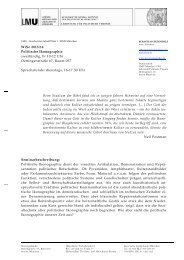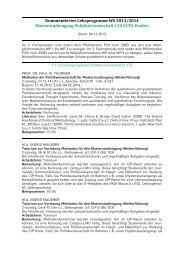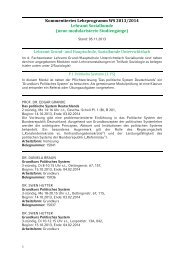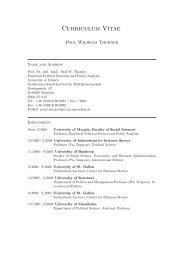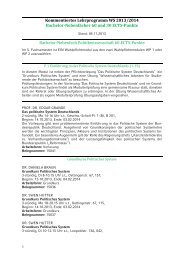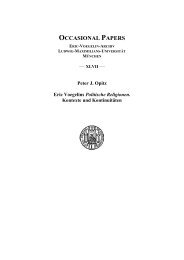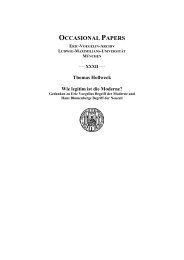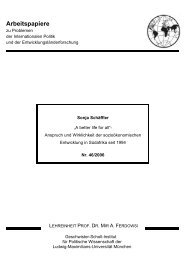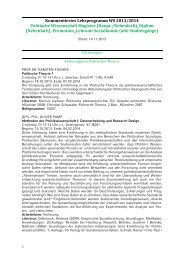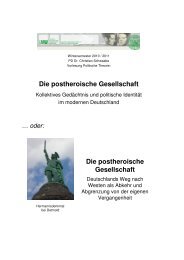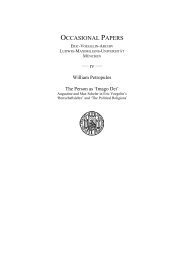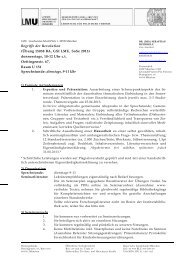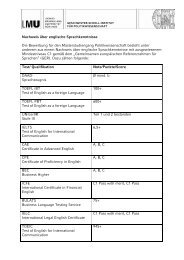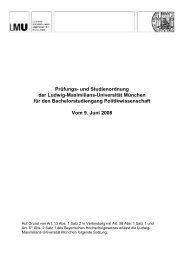Eric Voegelin.pdf - Geschwister-Scholl-Institut für Politikwissenschaft
Eric Voegelin.pdf - Geschwister-Scholl-Institut für Politikwissenschaft
Eric Voegelin.pdf - Geschwister-Scholl-Institut für Politikwissenschaft
You also want an ePaper? Increase the reach of your titles
YUMPU automatically turns print PDFs into web optimized ePapers that Google loves.
„Man’s partnership in being is the essence of his existence,<br />
and this essence depends on the whole, of which existence is<br />
a part. Knowledge of the whole, however, is precluded by the<br />
identity of the knower with the partner, and ignorance of the<br />
whole precludes essential knowledge of the part“.<br />
<strong>Eric</strong> <strong>Voegelin</strong>, Order and History, I, 2.<br />
Introductory Note<br />
In this study I have sought to accomplish two objectives: (1) to<br />
present an account of <strong>Voegelin</strong>’s understanding of original<br />
(i.e. ancient) gnosticism as it developed from The New Science<br />
of Politics to Volume V of Order and History, and (2) to bring<br />
out the implications for <strong>Voegelin</strong>’s teaching on both ancient<br />
and modern gnosticism for an understanding of the Cult of<br />
(Expressive) Violence in our time. These two themes are<br />
interwoven in my text, just as they are in the texts of <strong>Voegelin</strong>.<br />
Although there have been a few learned treatments of<br />
<strong>Voegelin</strong> and Gnosticism — the essay by Gregor Sebba on<br />
„History, Modernity, and Gnosticism“ in The Philosophy of<br />
Order 1 is especially noteworthy —, no one to my knowledge<br />
has traced what <strong>Voegelin</strong> had to say about Gnosticism over<br />
time, letting him speak in his own words, and I am glad that in<br />
this paper I have been able to accomplish this task.<br />
The discussion of what <strong>Voegelin</strong> actually said on the second<br />
theme — the implications of the Gnostic preintellectual<br />
disposition against reality for the emergence of the Cult of<br />
Violence — would be brief indeed if we were to rely<br />
exclusively on <strong>Voegelin</strong>’s own words. This is perhaps because<br />
his notion of „science“ left little room for the detailed<br />
depiction of or even reference to the most monstrous acts of


